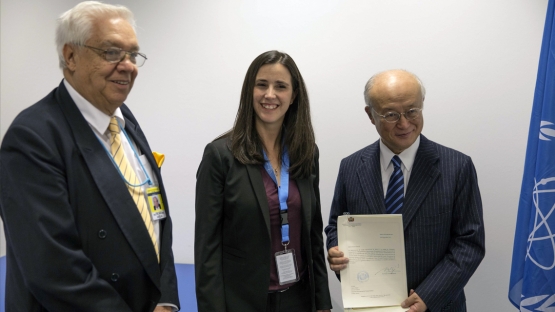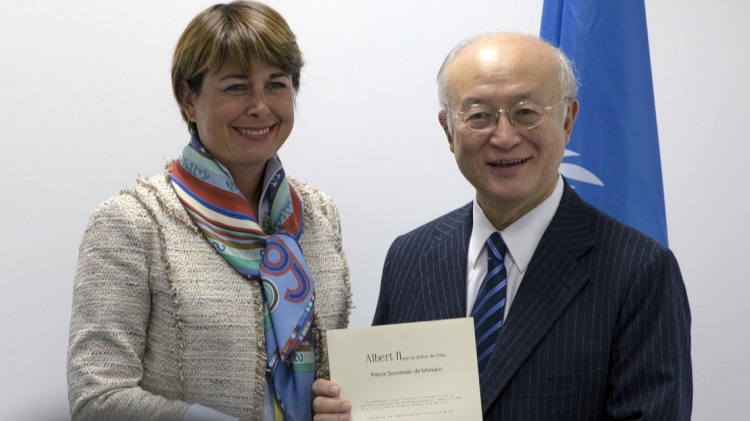Three countries took key actions today to strengthen nuclear safety and security. On the margins of the IAEA General Conference, Bolivia, Monaco and Syria each deposited a legal document related to treaties under the IAEA’s auspices.
“I am very pleased that this Treaty Event provides an opportunity for countries to present instruments expressing consent to be bound by these important treaties,” said IAEA Director General Yukiya Amano at the event.
This year, the event focused on the Amendment to the Convention on the Physical Protection of Nuclear Material (CPPNM), the Convention on Nuclear Safety (CNS), and the Joint Convention on the Safety of Spent Fuel Management and on the Safety of Radioactive Waste Management (Joint Convention).
Amendment to the Convention on the Physical Protection of Nuclear Material (CPPNM)
“Universal implementation of the amended Convention will help to ensure that nuclear material and facilities throughout the world are properly protected against malicious acts by terrorists,” Mr Amano said.
The CPPNM Amendment expands the original Convention, adopted in 1979, to cover the protection of nuclear facilities and nuclear material in domestic use, storage and transport. In addition, it expands the existing offences identified in the CPPNM, such as the theft of nuclear material, and introduces new ones, in particular the smuggling of nuclear material and the actual or threatened sabotage of nuclear facilities. Further, the Amendment provides for expanded cooperation and information sharing between States to locate and recover stolen material and in the case of sabotage. Following the entry into force of the Amendment to the CPPNM in May 2016, Mr Amano called on all countries that had not already done so to adhere to this key legal instrument.
Víctor Alfredo Veltzé Michel, Bolivia’s Permanent Representative to the IAEA, deposited his country’s instrument of ratification of the CPPNM Amendment. “I am pleased to hand over the instrument signed by our President, which contributes to increased nuclear security,” he said.
Isabelle Berro Amadeï, Permanent Representative of Monaco to the IAEA deposited the instrument of acceptance of the CPPNM Amendment on behalf of her country.








